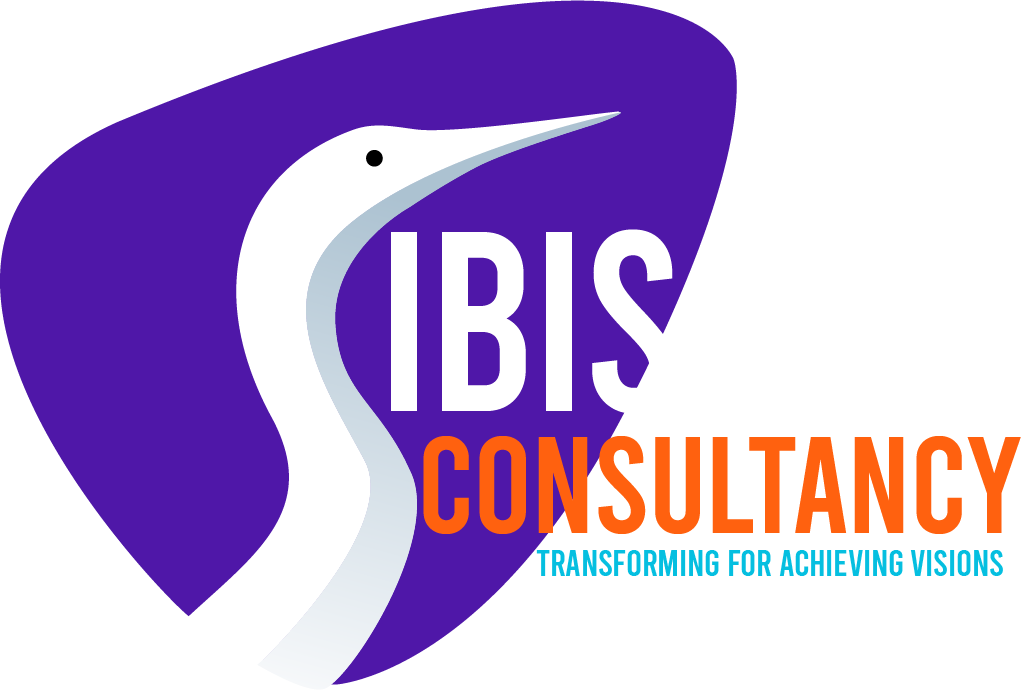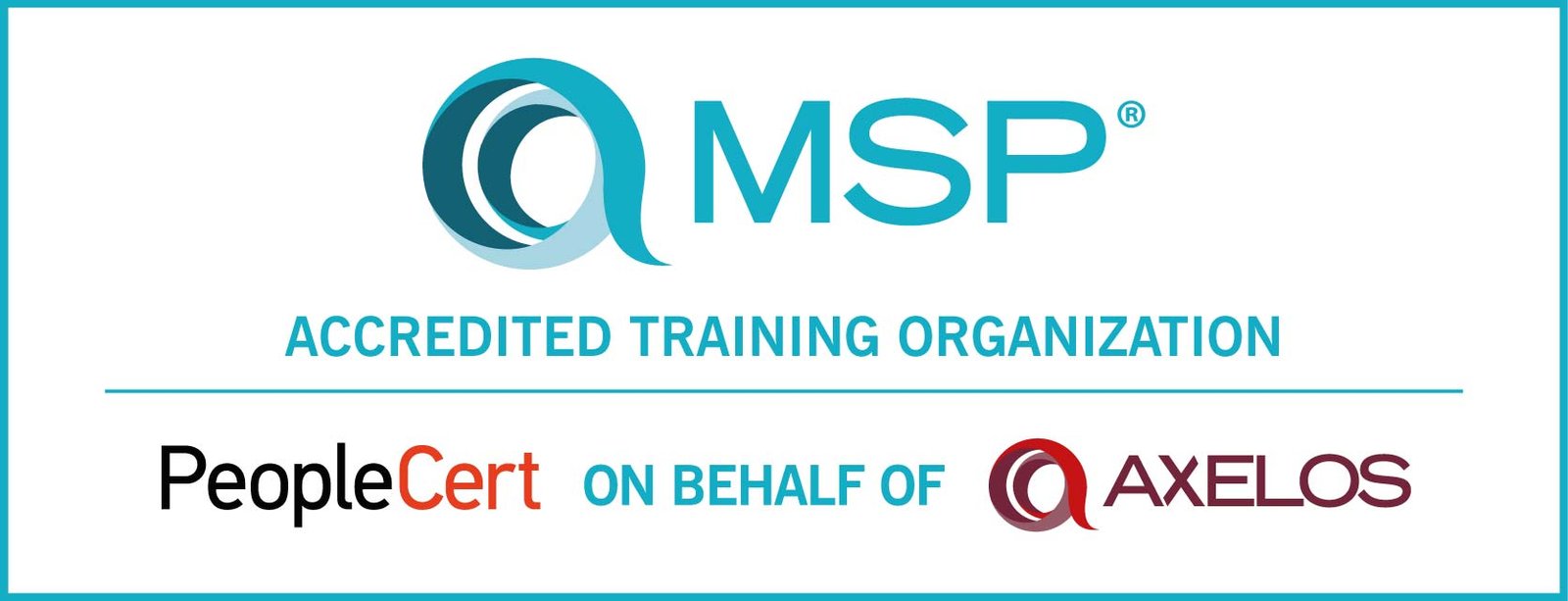MSP® 5th Edition Foundation
- Course Duration: 14+h
- qualification: MSP®
About this course
Introduction
MSP, or ‘Managing Successful Programs’, is a structured methodology for effective program management.
It offers a set of proven principles and processes that helps managers to break complex programs down into manageable projects that align perfectly with their business goals.
More about the course
This MSP certification course provides an in-depth exploration of MSP program management.
MSP starts by identifying the strategic business goals of a program and the benefits to be delivered.
Practitioners then move on to defining responsibilities for the individuals involved before establishing the rest of the program.
The ongoing monitoring and coordination of projects, auditing programs for quality assurance, and managing transition points are all important elements covered within this course.
It also looks at the identification and management of risks, as well as competently closing programs once they have achieved their goals – both essential parts of MSP.
Benefits for Individuals
More organizations today are realizing the benefits of employing certified program managers to enable transformational changes.
This increase has been noted across multiple industries.
Because of this, MSP certification can greatly improve a candidate’s career prospects.
It can guide individuals into more lucrative careers in the public, private, and non-profit sectors, as well as various locations all over the world.
Benefits for Organizations
Training your staff in MSP will create a common understanding of a robust framework, mitigating communication issues and productivity losses during crucial programs.
A unified methodology can help key stakeholders stay involved while also remaining aware of their responsibilities.
All of this can greatly expedite the delivery of the projects within a program.
This MSP Foundation training course helps organizations to:
- Break down corporate initiatives into clearly-defined projects
- Plan the projects that support a program
- Identify key stakeholders and define their roles and responsibilities
- Manage risks and change efficiently
- Deliver projects within agreed budgets and timeframes
- Audit to enable quality maintenance
Course Outline
This module introduces MSP and explores what makes it unique and useful.
Learners will also receive an outline of the course content and learning objectives.
This module describes what constitutes a program within an MSP environment.
It explores the characteristics of programs, their triggers, and how they interrelate.
The three core elements of MSP are also covered: Principles, Governance Themes, and Transformational Flows.
There is a focus on the Principles of MSP and their contribution to overall program success. These include Alignment with Corporate Strategy, Leading Change, and Communicating the Future.
This module explains the nine Governance Themes within MSP.
These include Leadership and Stakeholder Management, Planning and Control, The Business Case, and Quality Management.
Learners will also become familiar with the most important roles in MSP governance, including the Senior Responsible Owner (SRO) and the Program Office.
This module details the key roles defined within the MSP methodology, including:
- Sponsoring Group
- SRO
- Program Board
- Program Manager
- Business Change Manager (BCM)
- Business Change Teams
- Program Office
Learners will explore the membership of different MSP groups, the core functions of various roles, and the key features of an organized program.
They will also come to understand the purpose and responsibilities of different roles, as well as the purpose of an MSP organization structure.
This module outlines the Vision Statement and its purpose and content.
Students will learn to structure a well-made MSP Vision Statement with all the appropriate characteristics and content.
The module also describes the theme of Vision Governance as it relates to the MSP roles of SRO, Program Manager, and BCM.
This module describes the role of stakeholders in MSP, along with their interactions with Program Managers.
Learners will explore various definitions within MSP and the purpose of different tools associated with good stakeholder engagement.
The four elements of successful communication with stakeholders are also covered, as well as how to make messages as impactful as possible.
This module explores the practices of MSP Benefits Management, including the four validation tests for judging a benefit.
The language of explaining benefits in change terms is also covered. Learners will study how to describe the outputs, outcomes, and benefits of a program.
They will also examine the four-step cycle for managing benefits within a program.
The purpose and content of the benefits map and benefits profiles will then be described, as will Benefits Realization Management as a Governance Theme.
This module explores POTI models (Processes, Organization, Technology, and Information) as tools for designing and delivering blueprints.
The content explores the content found in MSP blueprints and the purpose of tranches and workstreams.
This module examines the definition of resources within MSP and their role in program Planning and Control.
Learners will explore the core concepts within Planning and Control, including resource management plans and strategies.
They will also explore project dossiers in detail.
The module also covers project monitoring and the management of dependencies within a program.
This module specifies the content and purpose of a business case throughout the lifecycle of a program.
It also offers an explanation and breakdown of program costs.
This module explains the key definitions within Risk Management, including ‘Risk’, ‘Issue’, and ‘Configuration Item’.
Learners will study how to describe Impact, Probability, and Proximity, as well as different types and sources of risks.
The essential tools around risks and issues will also be covered, including risk registers and probability impact grids.
This module explores the delivery of high-quality programs. This includes auditing, measurement, assurance, and gated reviews.
Learners will be familiar with the purpose and scope of the key tools required for managing quality and assurance in MSP programs.
These include Information Management Plans, Asset Management, and Configuration Management.
This module covers the six Transformational Flow Processes as defined in MSP.
Each process is explored in turn, and the core activities within pre-transition, transition, and post-transition are described.
Learners will also examine the key documents within Transformational Flow, including the Program Brief and Program Definition Document.
The module also covers the importance of the process of Closing a Program and the associated tests.
Practice Exam Simulators
Learners will be invited to complete a number of practice exams that will simulate the official MSP Foundation Exam.
Exam/Assessment
The course includes an exam voucher for the MSP Foundation examination. The exam can be taken virtually online using a service provided by PeopleCert.
- Objective testing
- 75 questions (5 trial questions)
- 35/70 to pass or 50%
- 60 minutes (more time allocated in countries where English is a second language)
- Closed-book
- Online proctored exam OR an approved test center (Pearson Vue/Prometric)
What do you get?
- 6 months’ access from the date of purchase to complete your training
- 12+ hours of online training content
- Free exam voucher
- Access through multiple devices
- Offline player for studying on the move
- Tutor support
FAQs
What is MSP?
MSP or Managing Successful Programmes is a structured methodology for effective program management. It is a proven and established methodology that utilizes proven program management principles, governance themes, and transformational flows.
Is MSP suitable only for IT projects?
No, MSP is a generic methodology that can be applied to a project of any nature across any sector.
Who owns MSP?
MSP is owned by AXELOS Ltd. It has a certification scheme with three levels: Foundation, Practitioner, and Advanced Practitioner.
Is this MSP course accredited?
Yes, this MSP Foundation course has been accredited by PeopleCert on behalf of AXELOS Ltd.
What are the prerequisites for this course?
There are no formal prerequisites for the Foundation level. However, having prior knowledge of project management would be beneficial.
What is the duration of this course?
The seat time of the course is 12 hours. This includes all the learning modules, revision modules, module-level assessments, and mock exams.
How long can users access this course?
Learners receive 12 months of access from the purchase date of the course.
How long is the exam voucher valid for?
The exam vouchers are valid for 12 months.
How can the exam be taken?
The course includes exam vouchers for the MSP Foundation certification examination. The exams can be taken virtually online using a service provided by PeopleCert.
Does the course include a manual?
The course does not require a manual. However, you can complement your training with the official MSP manual, ‘Managing Successful Programmes 2011 Edition’.
What you will learn
Introduction to MSP®:
- Participants will gain an overview of the MSP® framework, its purpose, and its benefits in managing programmes effectively.
Principles of Programme Management:
- Learn about the seven principles that underpin successful programme management, including aligning with corporate strategy, leading change, and managing benefits.
MSP® Themes:
- Explore the seven themes of MSP®, including vision, leadership and stakeholder engagement, benefits management, blueprint design and delivery, risk and issue management, quality management, and organizational change management.
MSP® Transformational Flow:
- Understand the MSP® transformational flow, which consists of processes for defining, delivering, and realizing benefits from programmes.
Programme Governance:
- Learn about the importance of governance in programme management and how it ensures that programmes remain aligned with organizational objectives and deliver value.
Stakeholder Engagement:
- Gain insights into stakeholder management strategies and techniques for effectively engaging and communicating with stakeholders throughout the programme lifecycle.
Benefits Management:
- Understand the principles and practices of benefits management, including identifying, planning, delivering, and realizing benefits to ensure the programme’s success.
Risk and Issue Management:
- Explore techniques for identifying, assessing, prioritizing, and managing risks and issues that may impact programme delivery and success.
Quality Management:
- Learn about the importance of quality management in programme management and how to ensure that programme deliverables meet predefined quality standards.
Organizational Change Management:
- Gain insights into the principles and practices of organizational change management and how to manage and mitigate resistance to change within the programme context.
By completing the MSP® 5th Edition Foundation course, participants will have a solid understanding of the MSP® framework, its principles, themes, and processes, enabling them to contribute effectively to programme management initiatives within their organizations.
Benefits of this course
Comprehensive Understanding:
- Participants gain a comprehensive understanding of programme management principles, themes, and processes, providing them with a solid foundation for effective programme management practices.
Internationally Recognized Certification:
- Completion of the MSP® 5th Edition Foundation course leads to internationally recognized certification, demonstrating competency in programme management according to the MSP® framework.
Enhanced Career Opportunities:
- Certification in MSP® programme management enhances career opportunities for individuals by demonstrating their proficiency in managing programmes and delivering successful outcomes.
Improved Programme Management Skills:
- Participants develop practical skills and techniques for planning, executing, and evaluating programmes, enabling them to effectively manage programmes from inception to delivery.
Alignment with Organizational Objectives:
- The MSP® framework helps organizations align programme management practices with strategic objectives, ensuring that programmes contribute to the achievement of organizational goals and benefits realization.
Better Stakeholder Engagement:
- Participants learn stakeholder engagement techniques for effectively engaging and influencing stakeholders throughout the programme lifecycle, fostering collaboration and support for programme initiatives.
Risk Mitigation and Management:
- The MSP® framework equips participants with tools and techniques for identifying, assessing, and managing programme risks, enabling them to minimize risks and disruptions to programme delivery.
Improved Benefits Realization:
- Participants learn how to define, plan, and manage programme benefits effectively, ensuring that programmes deliver tangible value and benefits realization for stakeholders and the organization.
Enhanced Organizational Performance:
- By implementing MSP® programme management practices, organizations can enhance their performance by delivering successful programmes that achieve strategic objectives, maximize benefits, and optimize resources.
Continuous Improvement:
- The MSP® framework emphasizes the importance of continuous improvement, enabling organizations to learn from past experiences, refine programme management practices, and drive ongoing success.
Overall, the MSP® 5th Edition Foundation course provides individuals and organizations with the knowledge, skills, and tools needed to effectively manage programmes, deliver successful outcomes, and drive organizational performance and success.

